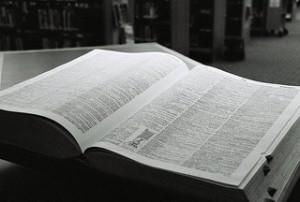05 Feb Using Online Legal Dictionaries
Many legal dictionaries are available on the Internet:
- First (1891) and Second (1910) Editions of Black’s Law Dictionary;
- The U.S. Courts provides a glossary;
- Wex is a free legal dictionary and encyclopedia sponsored and hosted by the Legal Information Institute at the Cornell Law School. Wex entries are collaboratively created and edited by legal experts;
- Lawyers.com offers a legal dictionary based on the Merriam-Webster’s Dictionary of Law (2001);
- The World Wide Legal Information Alliance offers a legal dictionary based on Duhaime’s Legal Dictionary;
- A wide collection of legal dictionaries is available at http://www.yourdictionary.com/ including Anderson’s Dictionary of Law (1893), Bouvier’s Law Dictionary (1856), Criminal Justice Today Glossary, Criminology Today Glossary, Criminal Law Glossary, Canadian Bankruptcy Glossary, Divorce Law Dictionary, Duhaime’s Law Dictionary, Everybody’s Legal Glossary, Glossary of Commercial Fraud, International Law Glossary, INS Glossary of Immigration and Naturalization Law, Law Glossary, Merriam-Webster’s Law Dictionary, Legal Lexicon’s Lyceum, Merriam-Webster’s Law Dictionary, Oxford Law Dictionary, and Wiki Law Dictionary;
- Nolo’s Free Dictionary of Law Terms and Legal Definitions;
- Two sites, http://www.babylon.com/define/56/Legal-Dictionary.html/ and http://www.legaldictionaries.org/, will look up the word in multiple legal dictionaries at once.
Before citing a legal dictionary to a court, search that court’s recent decisions to identify which dictionaries the court has cited. If a judge has a strong preference, it will show up in a computer search for the judge and dictionary, and you can then use that knowledge to your advantage.
Image courtesy of Flickr by greelie (creative-commons license, no changes made).



